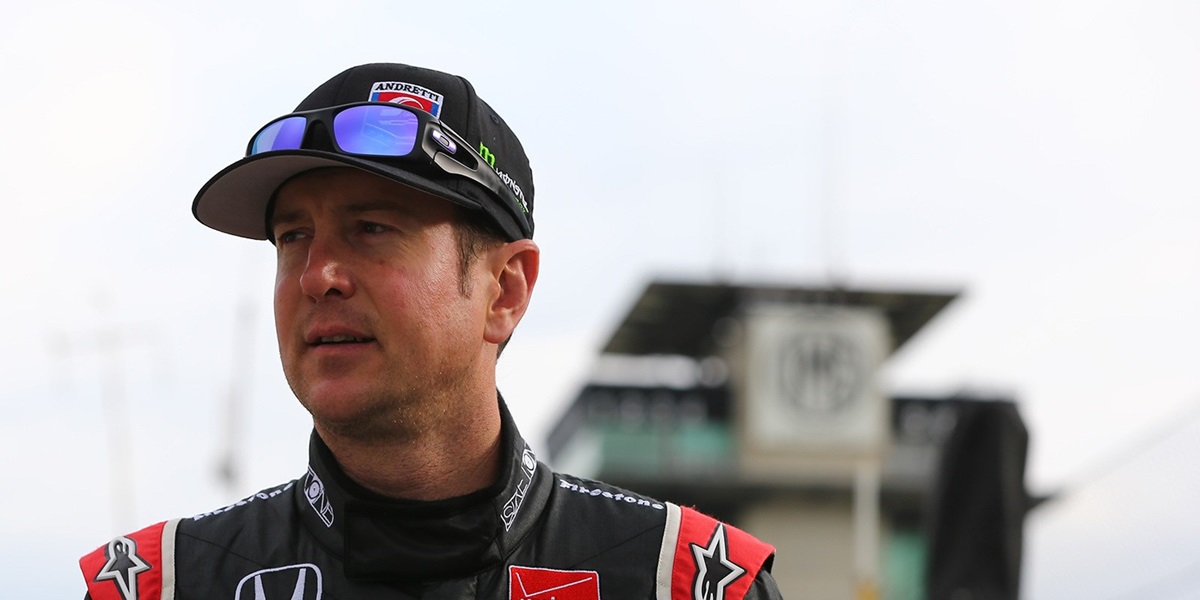
'Double' Only A Part of Busch's Military Drive
May 20, 2014 | By NASCAR
Even in the nation's capital, it would be hard to find a more impressive group. Members of Congress enter with tiny American flags pinned to their lapels, generals and admirals with great clusters of campaign ribbons pinned to their chests. All told there will be more than 60 federal lawmakers and 150 flag officers assembled in the atrium of the Ronald Reagan Building, and amid that kind of political power and military muscle, it's easy for anyone else to get overshadowed.
Even the 2004 champion of NASCAR's top series. "You put on a suit like this, and you look like a freshman congressman or something," Kurt Busch joked. "Or I look like an aide."
Make no mistake, though -- on this night, Busch's influence is as strong as anyone's. When it comes time for someone to stand before the cameras and talk about why so many celebrities and power brokers have gathered at a gala to support the Armed Forces Foundation, the Stewart-Haas Racing driver is high on the list of targets. After all, he has the ear of the foundation's director, Patricia Driscoll, who is also his girlfriend. He's been to Capitol Hill lobbying for the causes of men and women in uniform. He's tried to improve the spirits of those dealing with the darkness of post-combat conditions.
And Memorial Day weekend, Busch will become just the fourth driver to attempt NASCAR's Coca-Cola 600 and the Indianapolis 500 on the same day -- both to challenge himself as a racer, as well as raise awareness for the hundreds of thousands of veterans and active military members now battling post-traumatic stress disorder or traumatic brain injury. "I'm driving for the military this Memorial Day weekend," he said when his Indy 500 entry was unveiled.
This is more than Busch's hobby. As a recent day in Washington demonstrated, it's become his cause -- one that led Busch to shut down his own foundation and fold it within the AFF, and has helped to change not only just how others might perceive him, but how he sees himself.
"Working with the Armed Forces Foundation and talking to veterans like myself, I think he's getting a better understanding of him," said Samuel Deeds, a retired Marine gunnery sergeant who underwent more than 30 surgeries after taking the brunt of an IED explosion in Iraq. Although the condition varies from one person to another, if there's anyone who personifies PTSD, it's Deeds -- who is engaging and funny and such a race fan, he wore a No. 3 cap to his senior prom. So it's jarring to see him choke back tears as he tells the story of being awakened unexpectedly by his oldest son, and instinctively grabbing a knife before his 108-pound German Shepherd intervened.
"Those are the toughest battles," Busch said. "Everyone can relate when they see someone with a missing limb, or someone who is a double amputee. You can see a visual wound, even on burn victims. … But it's the invisible wounds, that’s what I've seen my attention gravitate to. And so that’s where I've tried to help."
If there's ever a time when those wounds are most apparent, it's on the day of the congressional gala which serves as the AFF's biggest fundraiser, bringing in around $1 million. Busch isn't the only celebrity on hand -- also in attendance are country music singer Justin Moore, comedian Ron White, former NBA great Buck Williams, Washington Redskins linebacker Rob Jackson, four-time Olympic luger Cammy Myler, and several chefs including Food Network personality Anne Burrell. As far as members on Congress, the gala is the largest gathering of elected officials outside of Republican or Democratic party dinners.
As much as anyone, though, Busch has become the foundation's celebrity spokesman, each week racing with the AFF logo on his firesuit and the name of a service member on his car. Although NASCAR partners with the foundation through its "Troops to the Track" program and several series executives are in attendance at the gala, it seems clear that having a champion driver spearheading the effort -- not to mentioning espousing it through his much-publicized 500/600 double attempt -- helps galvanize attention.
"In NASCAR, you can have a good cause, but if you don’t really have a driver behind your cause, it doesn’t matter," Driscoll said. "The sport is behind our cause, but having him as a big advocate the way he has been -- it's so meaningful to so many people. Because everybody's been touched by the military -- a brother, themselves, their grandfather. So it's really awesome to have him as part of our team."
Story courtesy of NASCAR.com